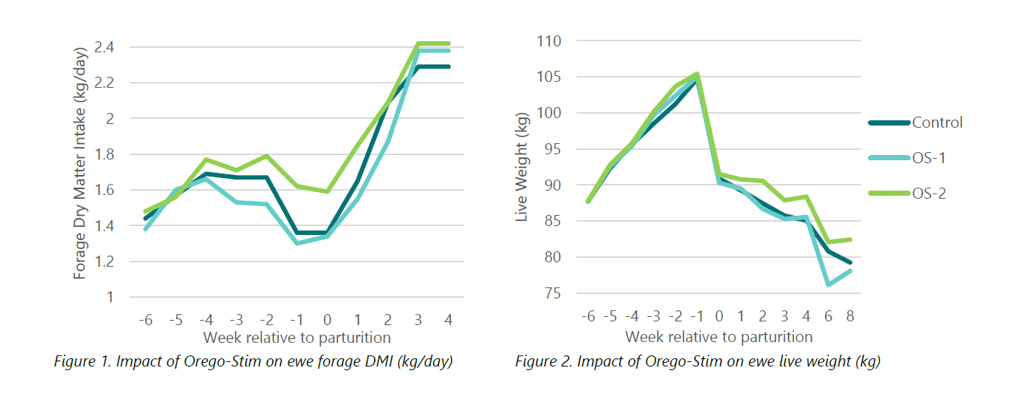Trial Summary - Orego-Stim Improves Ewe Performance During Late Pregnancy and Early Lactation
SUMMARY
- Orego-Stim was shown to improve ewe dry matter intake (DMI) of forage around lambing and increased lamb weight gain.
- Orego-Stim was also seen to help to alleviate ewe live weight loss during early lactation, this conferred benefits in energy efficiency may improve subsequent lambing performance.
BACKGROUND
Orego-Stim is a high quality plant based eubiotic, containing 100% natural oregano essential oil that has been shown to improve sow feed intake and piglet performance (Tan et al., 2015).
This trial was designed in order to evaluate the effect of feeding Orego-Stim in ewe concentrates on ewe and lamb performance.
RESULTS

- Orego-Stim included at 2g/kg in the concentrate tended to increase ewe forage intake and significantly reduced ewe live weight loss during early lactation.
- Including Orego-Stim in ewe concentrate at 2g/kg increased lamb daily live-weight gain from week 4 post-partum to finish (data not shown for brevity).
- The maternal reserves maintained in the ewe will likely result in economic benefits and improved profitability during subsequent production cycles.
TRIAL DESIGN
- A control concentrate (Control);
- The control concentrate with 1g/kg Orego-Stim (OS-1) included;
- The control concentrate with 2g/kg Orego-Stim (OS-2) included.


Leave a comment